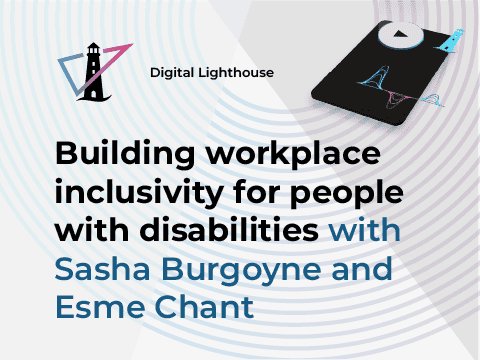
It’s been over four months since offices around the world closed down and workforces shifted en masse to their home offices, kitchen tables, sofas and spare rooms. With so many new situations to have to deal with, everyone knew it was going to be different, not least for workers’ mental health.
Routines we’d all been used to went out of the window, and new challenges cropped up. How do you juggle work, childcare and home schooling? How do you combat loneliness? How do you keep busy if you’re furloughed?
Several months down the line, we thought it would be interesting to share some of the things we’ve been doing and lessons we’ve learnt about supporting the mental health of our employees during the Covid-19 pandemic.
Publicise the support people have available to them
At a time of such uncertainty – both in terms of people’s job security and their health – it’s never been more important for organisations to support their employees’ mental wellbeing. We’ve actively raised the profile of these services, as well as those offered by other organisations, such as Mind. The key thing is that different people will appreciate different kinds of support, so it’s important to offer a mix of options. This brings us nicely to our next point…
Ask people what support they want
Choosing what these options should be is a challenge in itself, because it can be hard to put yourself in another’s shoes. How do you understand what people are going through and what support they’d find beneficial? This is why we’ve asked our line managers, senior management and HR to actively engage with people to find these things out. This enables them to tailor the support offering appropriately.
Communicate, communicate, communicate
During times of uncertainty, we wanted to give employees as much information about what was going on as we could, including those on furlough. We increased the frequency of our all-company management updates to weekly, to brief people on the state of play, both financially and more broadly. The management team also set out its plans for what the company would need to do if certain scenarios played out. Admittedly, not everyone found this easy. Some were understandably worried by talk of what would happen in a worst-case scenario. But overall the response was positive, and people indicated they appreciated being able to plan proactively for different situations, rather than having surprises sprung on them.
Provide routine (where possible)
Routine gives people a sense of normality, which many have found incredibly valuable when there’s so much uncertainty. We’ve made sure our teams maintain rituals such as daily standups, retrospectives, customer demos and the like. Doing so provides structure to people’s days and gives them a chance to interact with colleagues from afar. While trying to keep certain things the same, it’s also essential we recognise that some things will necessarily be different. With schools and childcare having been closed, for example, some teams have needed to adjust the timing of regular meetings to accommodate colleagues’ new routines.
Look after your furloughed employees
Be open to doing things differently
The Covid-19 pandemic has forced us all to change many things in our lives. Some have found new ways of living and working that they want to continue with. Others are keen to get back to previous routines as soon as they can. For example, some are really valuing the extra time they get from not having to commute to an office, which they can spend doing things that improve their mental and physical wellbeing. Others will have found they’re able to focus better when there aren’t lots of people around them, as there would be in an open-plan office. These people will likely want to continue working predominantly from home. Others may prefer being able to separate home and work-life, or thrive on in-person interactions. They’ll therefore be keen to return to an office as soon as it’s safe.
What this period has shown is that different things work for different people. We’re encouraged to see organisations talking positively about more flexible working in the future, and is something we’re looking to do as well, even as we re-open offices.
A fast-evolving landscape
The Covid-19 pandemic is an ever-changing situation. Home-working is set to continue for many office workers, in certain cases well into next year or even permanently. Other things in people’s lives will evolve: employees’ children will go back to school, their furloughed partners may return to work, or find they no longer have a job. All these things have the potential to impact on the mental wellbeing of your workforce. This is why it’s so important for organisations to double-down on supporting their people over the coming months. This has been such a challenging time for everyone in so many different ways. It’s vital we all continue to take care of each other.


